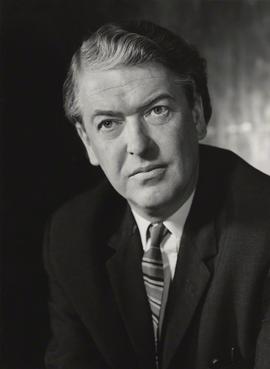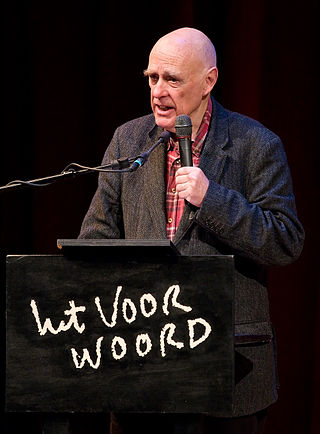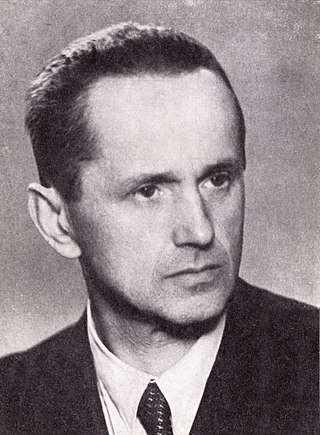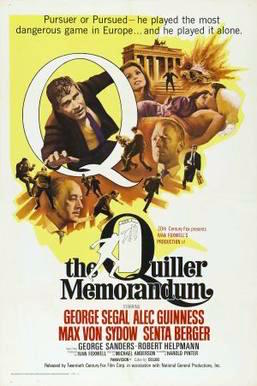Related Research Articles

Sir Kingsley William Amis was an English novelist, poet, critic and teacher. He wrote more than 20 novels, six volumes of poetry, a memoir, short stories, radio and television scripts, and works of social and literary criticism. He is best known for satirical comedies such as Lucky Jim (1954), One Fat Englishman (1963), Ending Up (1974), Jake's Thing (1978) and The Old Devils (1986).

Walter Herman Wager was an American crime and espionage-thriller novelist and former editor-in-chief of Playbill magazine. The movie Telefon, starring Charles Bronson, was inspired by his novel of the same name. His book 58 Minutes was adapted into Die Hard 2, starring Bruce Willis.

Dorothy Catherine Fontana was an American television script writer and story editor, best known for her work on the original Star Trek series.
Maurice John Cowling was a British historian. A fellow of Peterhouse, Cambridge, for most of his career, Cowling was a leading conservative exponent of the 'high politics' approach to political history.

Elleston Trevor was a British novelist and playwright who wrote under several pseudonyms. Born Trevor Dudley-Smith, he eventually changed his name to Elleston Trevor. Trevor worked in many genres, but is principally remembered for his 1964 adventure story The Flight of the Phoenix, written as Elleston Trevor, and for a series of Cold War thrillers featuring the British secret agent Quiller, written under the pseudonym Adam Hall.

Henry Kenneth Bulmer was a British writer, primarily of science fiction.

Hugo Brandt Corstius was a Dutch author, known for his achievements in both literature and science.
In 1966, the Transport Workers Union of America (TWU) and Amalgamated Transit Union (ATU) called a strike action in New York City after the expiration of their contract with the New York City Transit Authority (TA). It was the first strike against the TA; pre-TWU transit strikes in 1905, 1910, 1916, and 1919 against the then-private transit companies had all failed. There had also been some partial TWU strikes in the 1930s but no citywide actions. The strike led to the passage of the Taylor Law, which redefined the rights and limitations of unions for public employees in New York.

Kazimierz Damazy Moczarski was a Polish writer and journalist, an officer of the Polish Home Army. His book Conversations with an Executioner, recounted a series of interviews with Nazi war criminal Jürgen Stroop, a fellow inmate of the UB secret police prison under Stalinism, who was soon to be executed. Thrown in jail in 1945 and pardoned eleven years later during Polish October, Moczarski spent four years on death row (1952–56), and was tried three times as an enemy of the state while in prison.
Robert Charroux was the best-known pen-name of Robert Joseph Grugeau. He was a French author known for his writings on the ancient astronaut theme.

Vladimir Volkoff was a Russian writer who lived in France and whose books were written in French. He produced both literary works for adults and spy novels for young readers under the pseudonym Lieutenant X. His works are characterised by themes of the Cold War, intelligence and manipulation, but also by metaphysical and spiritual elements.

The Quiller Memorandum is a 1966 British neo noir eurospy film filmed in Deluxe Color and Panavision, adapted from the 1965 spy novel The Berlin Memorandum, by Elleston Trevor under the name "Adam Hall", screenplay by Harold Pinter, directed by Michael Anderson, featuring George Segal, Alec Guinness, Max von Sydow and Senta Berger. The film was shot on location in West Berlin and in Pinewood Studios, England. It was nominated for three BAFTA Awards, while Pinter was nominated for an Edgar Award for the script.

Derrick Somerset Macnutt was a British crossword compiler who provided crosswords for The Observer newspaper under the pseudonym Ximenes. His main oeuvre was blocked-grid and "specialty" puzzles. Even though he only provided conventional blocked puzzles once a week for the Observer Everyman series for about two years his strong views on clueing, expressed in his 1966 book, have been a source of debate in the cryptic crossword world ever since.
JP Trevor is a British conceptual artist best known for his surrealist and realist landscape painting and film design.
Quiller is a British drama television series starring Michael Jayston. The series premièred with the episode The Price of Violence on 29 August 1975 on BBC One. Quiller is the alias of a fictional spy created by English novelist Elleston Trevor who featured in a series of Cold War thrillers written under the pseudonym "Adam Hall".

Adam Remigiusz Grocholski war names "Brochwicz", "Doktor", "Inżynier", "Miś", "Waligóra", and pseudonym Żukowski was a Lieutenant Colonel (Podpułkownik) of the Polish Army. He retired from active service in 1934.

Bury Him Among Kings is a 1970 novel by Elleston Trevor. The title is taken from the Inscription on the Tomb of the Unknown Warrior in Westminster Abbey in London commemorating a British soldier of World War I. The plot involves a fictitious British Army battalion, the Third Dukes, serving on the Western Front in France between 1914-1918; the cast of characters includes a wide range both of those serving and their friends and family at home.

The Berlin Memorandum, is a 1965 spy novel written by Elleston Trevor. It is the debut novel of the character Quiller, who was ultimately featured in a series of 19 thrillers, until Trevor's death in 1995, having been Trevor's most popular character.
Percy Huntley Trevor was an English songwriter. Generally known as Huntley Trevor, he sometimes published music under the pseudonyms Raymond Wallace, Chester Wallace, and Slade Williams.
James Duncan Lawrence, best known as Jim Lawrence, was an American author best known for authoring most of the Tom Swift Jr. series of books and Friday Foster comic strip.
References
- ↑ Schickel, Richard (27 January 1967). "The Most Dour Spy of Them All: The Quiller Caper". Life. "Under the pseudonym of Adam Hall, he created Quiller, the monomial secret-agent hero of The Quiller Memorandum ..."
- ↑ Gussow, Mel (25 July 1995). "Elleston Trevor, 75, Novelist of Many Names and Books". The New York Times. p. A13.
- ↑ "The Man Who Was Quiller, by George Tolstiakov". www.quiller.net. Retrieved 2 October 2019.
- ↑ Hall, Adam (pseud). The Striker Portfolio. Fontana 1975, p. 114
- ↑ Hall, Adam (pseud). The Quiller Memorandum, Pyramid, 1966, p. 176
- ↑ Hall, Adam (pseud). The 9th Directive. Fontana, 1975, p. 10